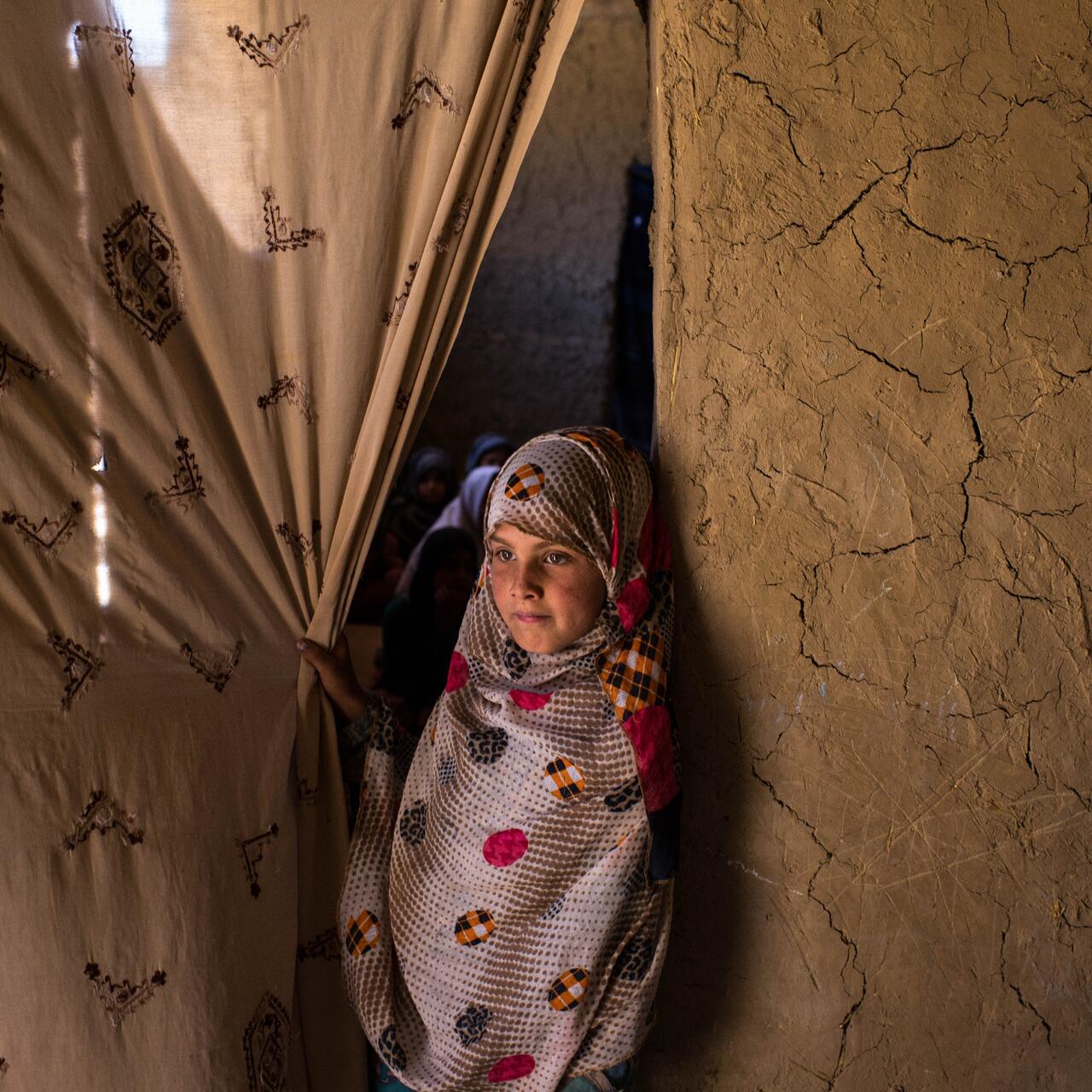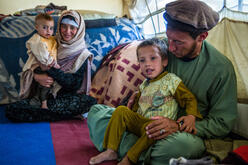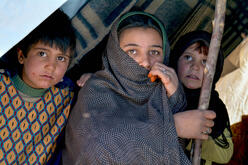
How can I help Afghanistan?
The crisis in Afghanistan is putting the lives of thousands of people at risk, including those who supported the United States. Learn what you can do to help Afghans.

The crisis in Afghanistan is putting the lives of thousands of people at risk, including those who supported the United States. Learn what you can do to help Afghans.
The humanitarian situation in Afghanistan continues to deteriorate rapidly as the country becomes more unstable. Already, around 550,000 people—80% of them women and children—have been displaced by conflict this year. Many Afghans say they fear for their lives.
More than 18 million people in Afghanistan require humanitarian aid—a number that has doubled since 2020, and fifty percent of Afghans in need are women and girls. But aid funding has fallen far short. The world must not turn its back on Afghanistan.
Here are five things you can do right now to help Afghanistan and Afghans in danger:
Donate now to help the International Rescue Committee (IRC) support Afghans in crisis.

The IRC has been responding in Afghanistan since 1988 and we will stay as long as we are needed. We have launched an appeal to raise much-needed funds to ensure our teams can continue to deliver lifesaving aid in areas of conflict, as well as to provide emergency cash assistance and protection services for internally displaced people in Kabul.
We support displaced families with shelter, clean water, sanitation and other basic necessities. We provide cash assistance and help people find livelihood opportunities. And we create safe learning spaces and offer community-based education, among other assistance.
The IRC is consistently awarded top marks by charity watchdog groups for our efficient use of donor contributions and the effectiveness of our work. See more reasons to give to the IRC.
Learn more about our work in Afghanistan.
While all eyes have been on the airport in Kabul, the reality is most Afghans in need of aid and protection remain in Afghanistan. Humanitarian needs in the country were already among the highest in the world before the crisis. Now, the situation is rapidly worsening by nearly every measure.
The Biden Administration must scale up humanitarian assistance to organizations on the front-line of the crisis. The administration must also urge safe passage for those evacuating the country and provide aid and support to neighboring countries who are hosting Afghans. Email the White House today.
The IRC stands in solidarity with the people of Afghanistan and our more than 1,700 staff there, most of them Afghans. One way you can show them your support is by sharing this post.

The IRC’s 25 offices across the United States support newly arrived refugees by providing immediate aid such as food, housing and medical attention, as well as long-term case management to help integrate them into American communities. Recently, we worked alongside partners to welcome Afghans who had helped the U.S. as they were relocated to a government facility in Virginia. As more arrive, we will continue to help Afghans get on their feet and thrive in their new lives.
Volunteers are a critical part of this work and there are a number of ways to get involved. As just a few examples, the IRC’s Phoenix office is looking for volunteers to set up apartments for newly-arrived refugees. And in both Denver and Missoula, offices are looking for people to mentor families by assisting with appointments, taking them to local attractions, cooking together, or otherwise helping them acclimate to the U.S.
Find volunteer opportunities in your area.
After decades of conflict, the country is experiencing one of the fastest-growing humanitarian crises in the world—one that’s compounded by the impacts of the COVID-19 pandemic and droughts intensified by climate change. Afghanistan ranks second only to Yemen in the IRC's list of crises expected to deteriorate the most in 2021.

Civilians are at risk of being caught up in violence: The country is on pace to hit a record number of deaths and injuries, with the majority being women and children. Unless world leaders act, 2021 is on track to be the deadliest year for Afghans in over a decade. International pressure is urgently needed to protect civilians and enable aid workers to safely reach all those in need.
Learn more about the crisis in Afghanistan and the IRC's work.